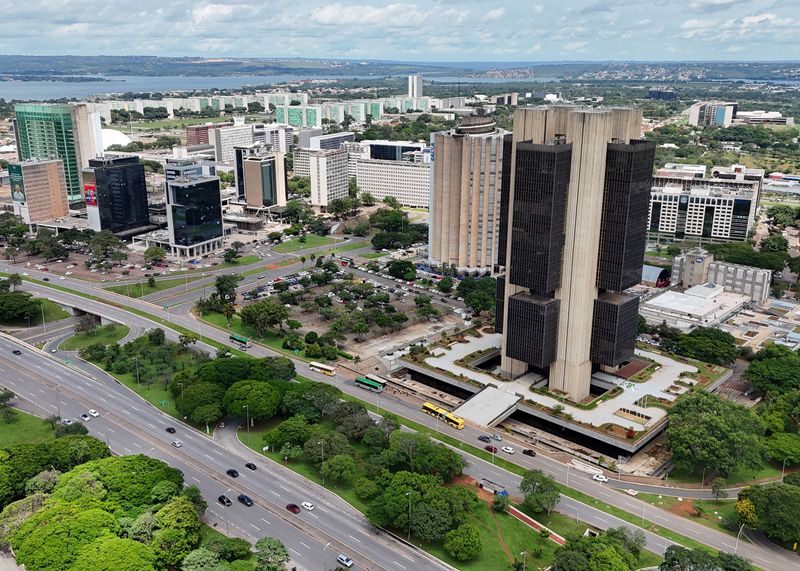BRASILIA (Reuters) - Brazil closed 2024 with a current account deficit equivalent to 2.55% of gross domestic product (GDP), the central bank said on Friday, more than double the level seen in the previous year after reporting a shortfall in December.
The deterioration was primarily attributed to a shrinking trade surplus, as import growth contrasted with decreases in exports amid a stronger-than-anticipated performance of Latin America's largest economy, which consistently exceeded expectations throughout the year.
According to the central bank, Brazil's trade surplus fell by 28.2% to $66.2 billion, reflecting a 1.2% decline in exports alongside a 8.8% rise in imports.
Also driven by strong economic activity, the services account deficit grew by 24.7% in the year, reaching $49.7 billion, further contributing to the current account deterioration.
In contrast, the factor payments deficit narrowed by 5.1%, the central bank said, influenced by reduced profit and dividend outflows.
The December current account deficit reached $9 billion, while foreign direct investment (FDI) for the month totaled $2.8 billion.
For the year, FDI reached $71.1 billion, equivalent to 3.24% of GDP, marking a 13.8% increase from the previous year.
The central bank also reported that portfolio investments in the domestic market posted net outflows of $4.3 billion in 2024, driven by net outflows of $17.1 billion in equities and investment funds, partially offset by net inflows of $12.8 billion in debt securities.

In December alone, portfolio investment net outflows reached $12.6 billion amid a sharp rise in the risk premium on Brazilian assets after the government unveiled a fiscal package that disappointed investors concerned about the rising trajectory of public debt.
This was the second-worst monthly result in the central bank's series, which began in 1995, surpassed only by the $22.1 billion outflow in March 2020, when the COVID-19 pandemic was declared.